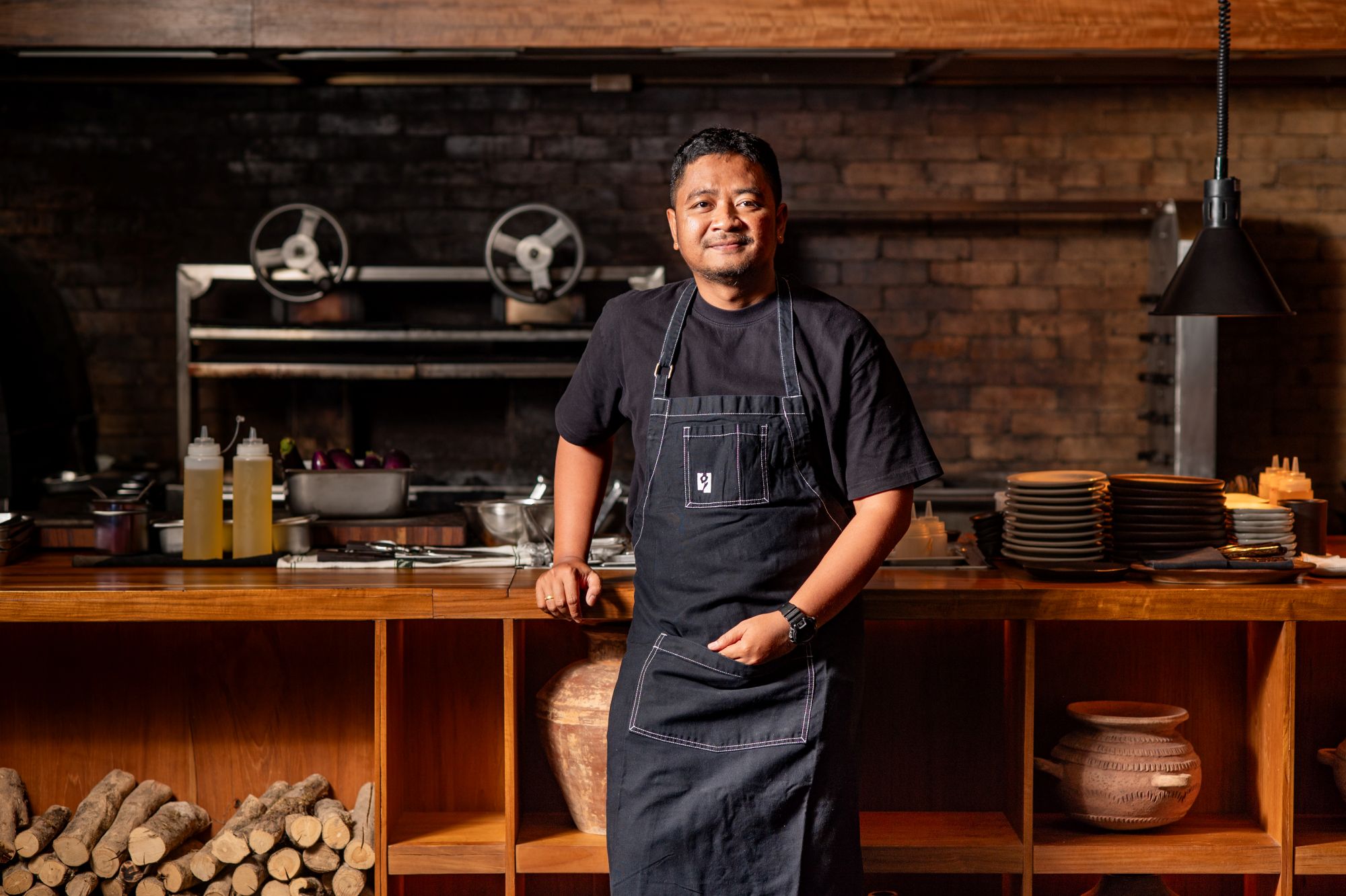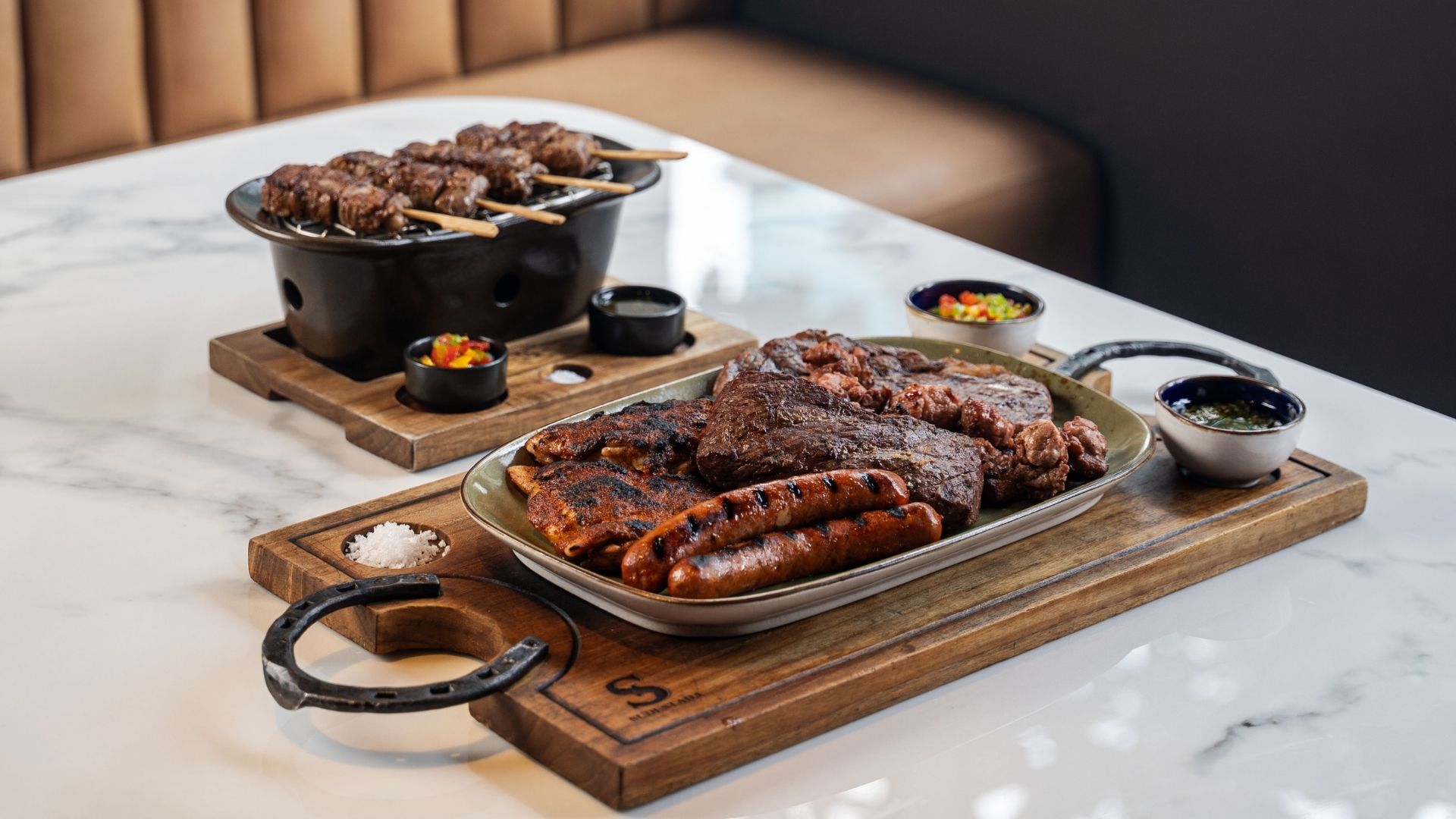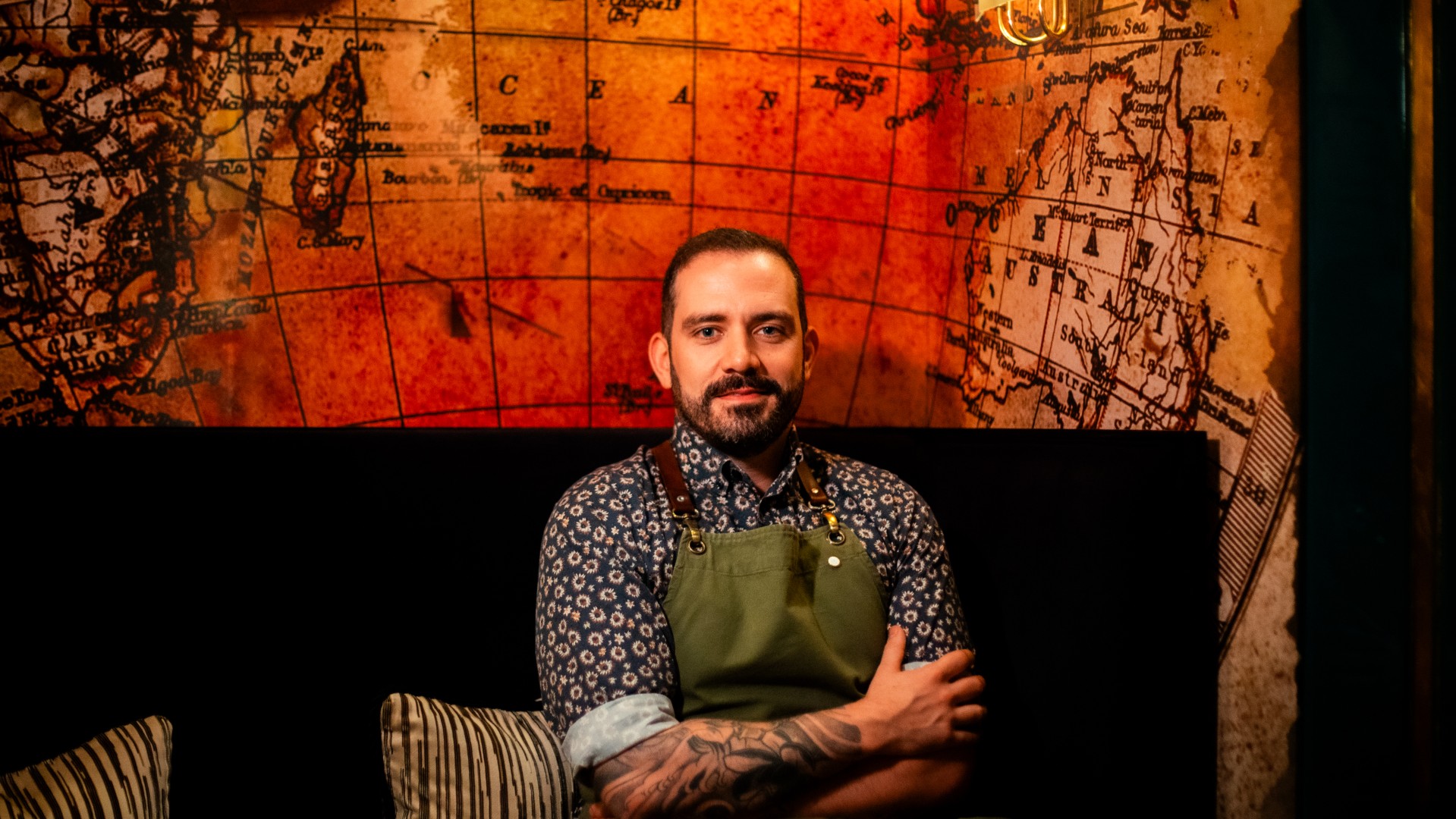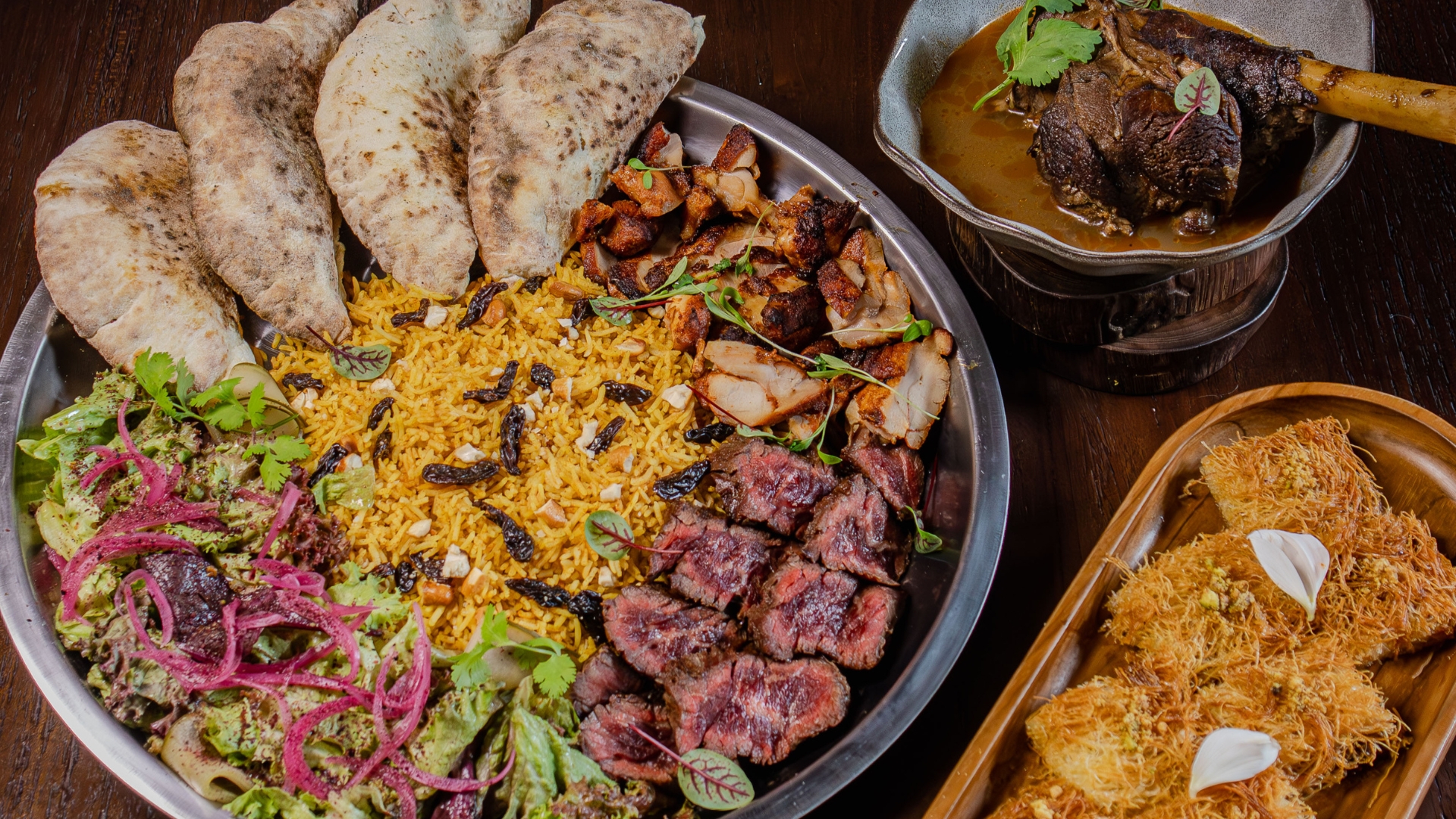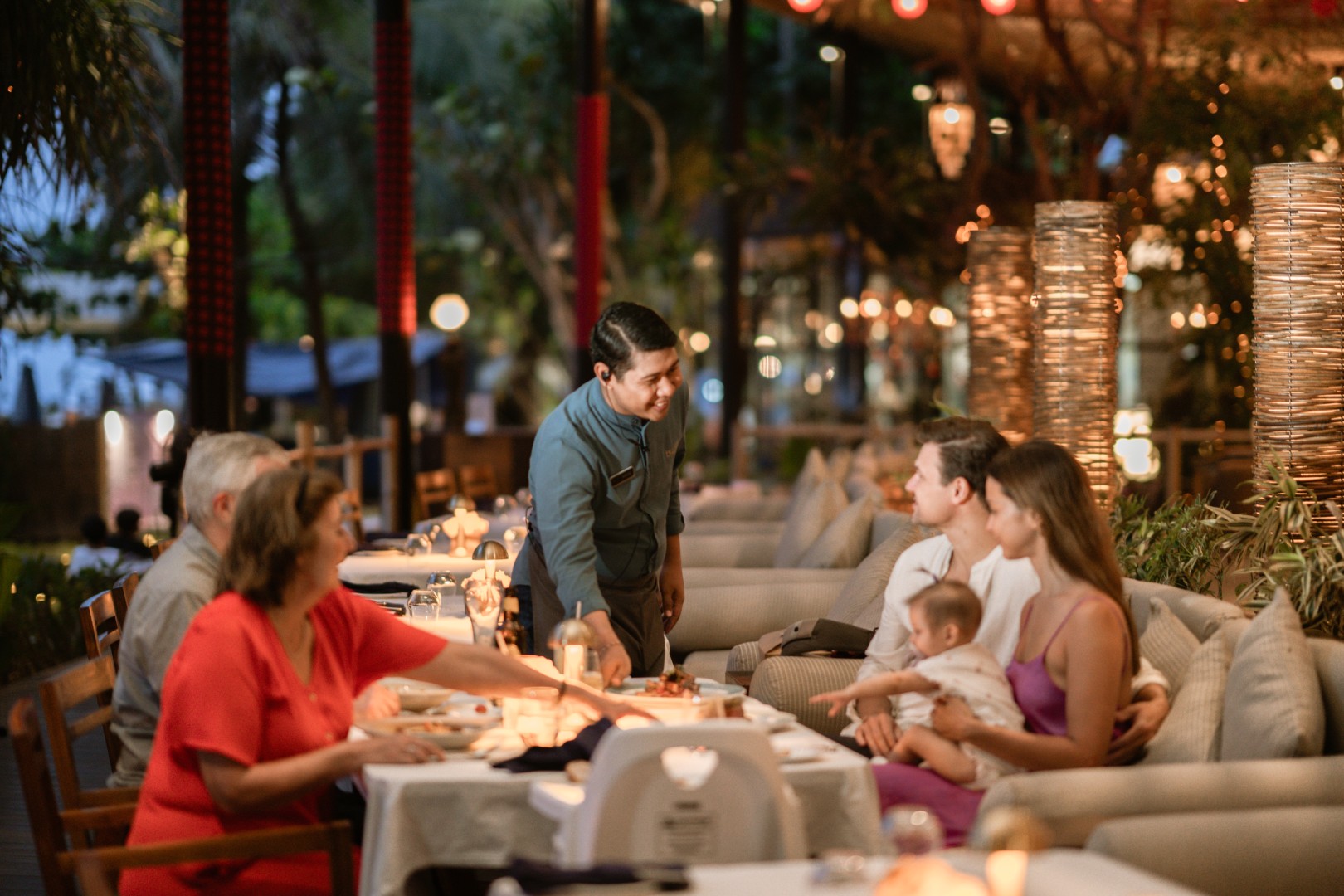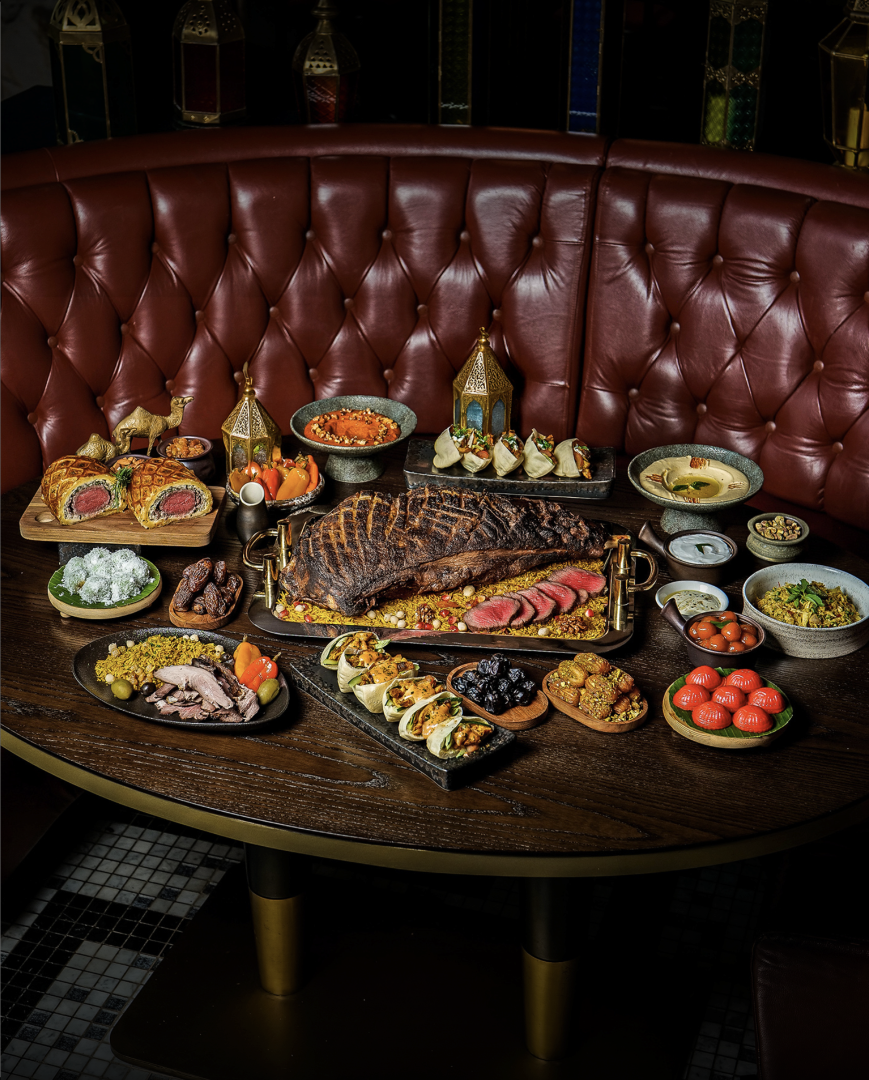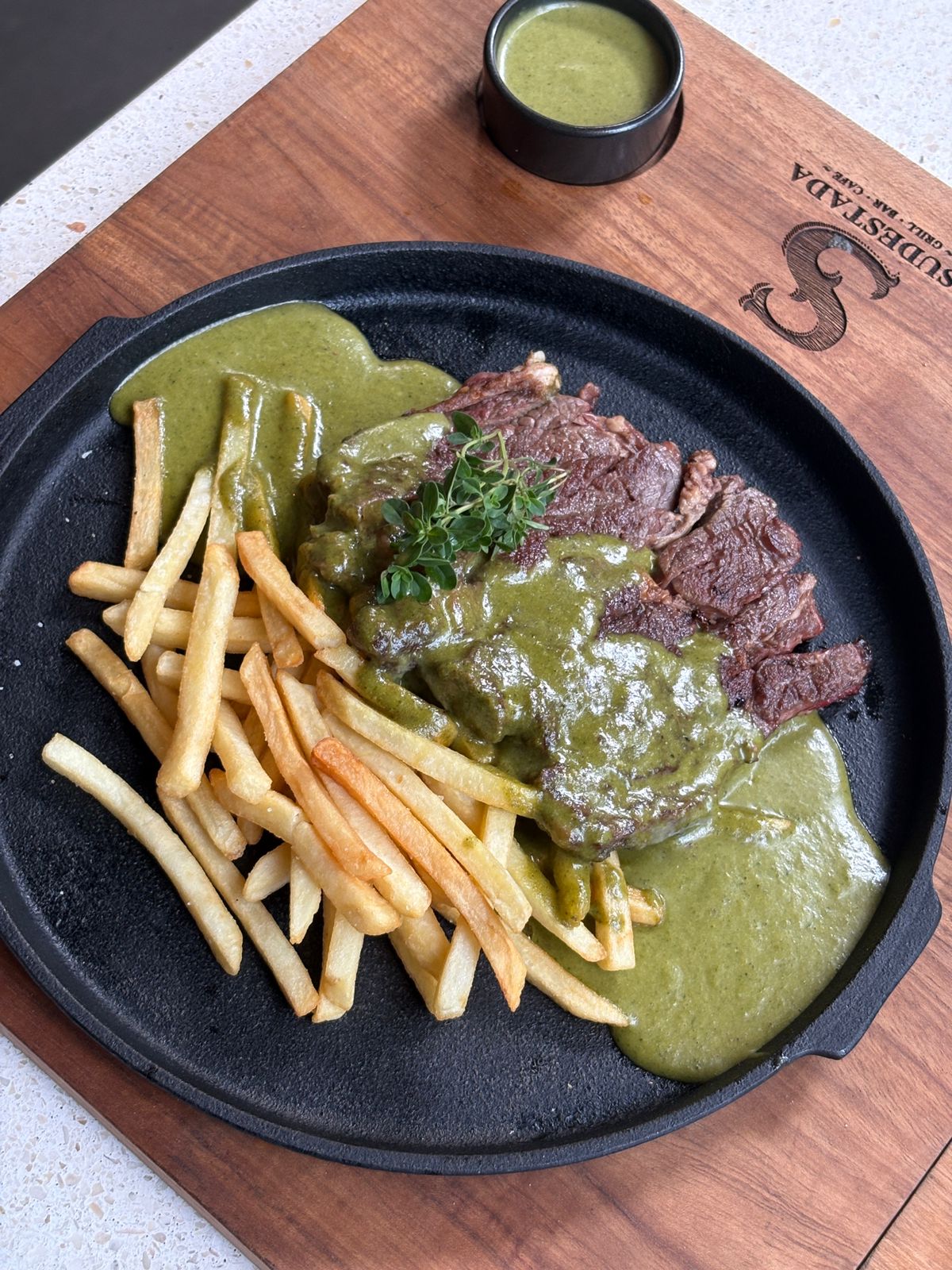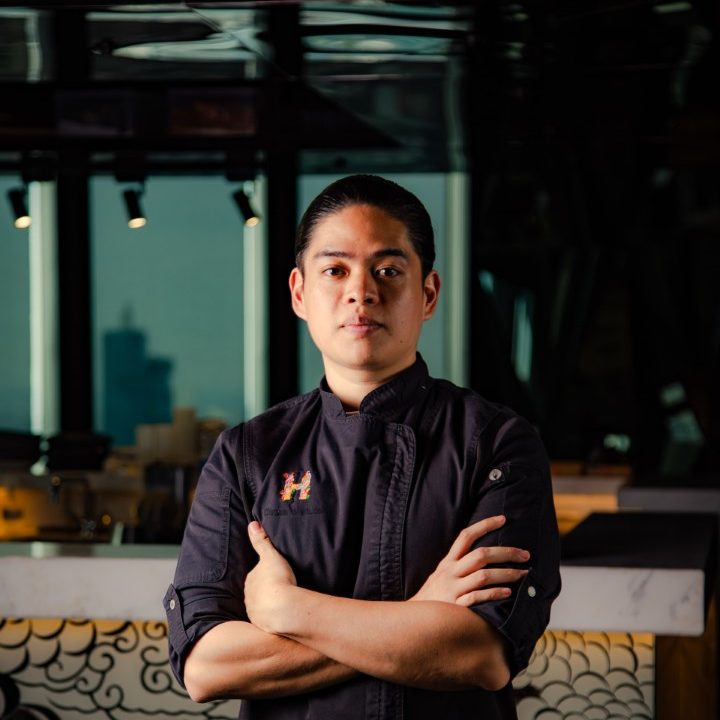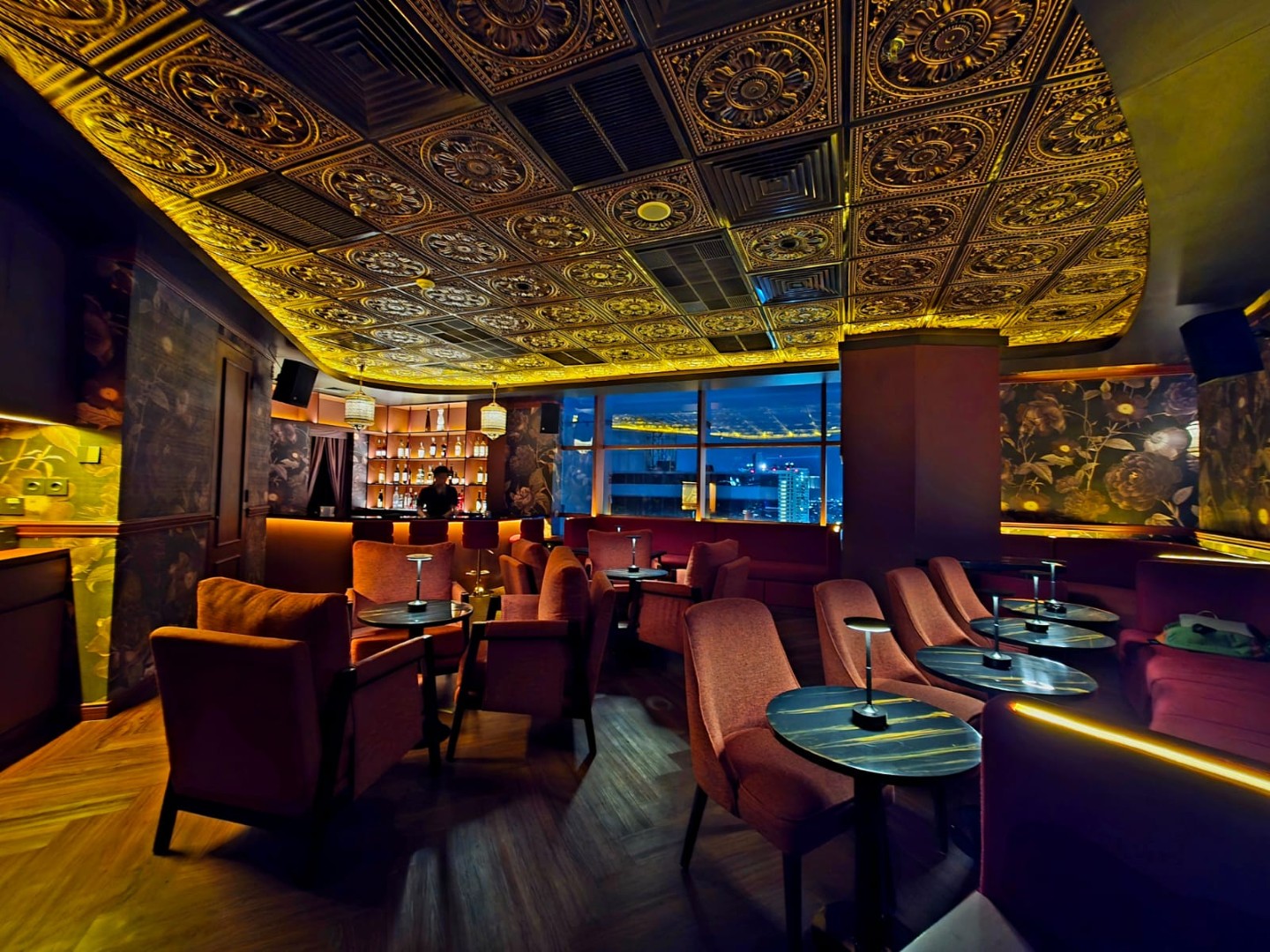Living by the ethos: ‘simpler is better,’ the executive chef of locally renowned hospitality group, Pulau Projects, Yudha Permana, connects to his roots of wood fire cooking as he creates straightforward, flavor-focused dishes in their two Asian inspired restaurants, YUKI and Meimei, located at the hip and trendy spots of Canggu and Uluwatu.
Chef Yudha leads the culinary direction for both YUKI and Meimei, with a menu that consists of bold, fire-forward dishes rooted in Southeast Asian and Japanese traditions, with a Balinese influence that pays respect to the Island of the Gods.
YUKI (translates snow or good fortune in Japanese) is a modern Japanese izakaya with a Balinese soul that is centered in communal dining. “Yuki is more relaxed, serving easy food,” says Chef Yudha, making Canggu and Uluwatu perfect spots for groups to come together and enjoy small plates, grilled dishes, and sake-forward cocktails served in a laid-back and minimalist setting.
It’s elevated, more refined sister, Meimei, focuses on Southeast Asian flavors accentuated by ancient recipes, reinterpreted through fire, smoke, and bold flavors. “At Meimei, you can see a lot of couples’ tables, it’s more intimate, and with more dining service,” strategically situated along Canggu’s Batu Bolong strip.
Both impress with massive open kitchens focusing on wood fire grill, designed based on the needs of Chef Yudha and his team, showcasing not only his mastery of this method, but also the rich, smoky flavors found in Balinese cooking. As a Bali-based hospitality brand, Pulau Projects designs are minimalist, earthy, made with natural materials and wood-accented interiors, striking a balance between modern and tradition, telling stories of the cultural heritage in modern society.
Balinese way of life
Soft spoken, humble, and assertive in the kitchen, Chef Yudha was born and raised in the coastal town of Pedungan, growing up following Balinese culture and traditions that deeply influenced his interest in going into the F&B industry.
“I’m a Balinese and then culture and tradition made me choose to take the road of F&B basically.
“In every single big ceremony in Bali, you can always see a lot of men doing the cooking, while the women are doing the offerings. I started doing this when I was about six years old, when I started to help my father and my uncle to prepare food for ceremonies.”
In traditional Asian homes, kitchen duties are usually the realm of the women, but this stereotype isn’t the same in Balinese culture, and working in the kitchen wasn’t unusual for the Balinese chef.
“My father also worked in F&B. And because I’m a Balinese, in our culture, it’s not only the mom or the girls doing the cooking, but it’s also the men,” Yudha shares.
From his early experience at home, Chef Yudha’s culinary journey began in local kitchens, shaped by the island’s rich food tradition. He did service in one of the hotels in Nusa Dua, to attending culinary school, moving forward working at popular restaurants such as Kul Kul Jimbaran, Sangsaka Restaurant, Mano Beach House Petitenget, and now executive chef at Pulau Projects, he has been in the industry for over 20 years.
“Working in the kitchen makes you more assertive, makes you mentally strong, and then more confident.”
Tradition with a twist
A deeper look into the dishes found in YUKI and Meimei, Chef Yudha makes a clear distinction on the food—preparation and presentation.
“You need to know your personality first,” is what Yudha lives by, when creating dishes for restaurants under Pulau Projects.
At YUKI, Chef Yudha focuses on the grill, knowing his strength is with fire. He works with Chef Ed, who focuses on making rolls and other Japanese dishes, and who had an extensive experience in working with a Japanese chef.
With his knowledge of the grill, his experience in the kitchen, and his travels to Japan, Chef Yudha has mastered crafting dishes like the Wagyu Beef Sando, as well as items in the Yakitori and Yakimono sections of the YUKI menu.
“If you can learn about their culture, and then their tradition, you get to the point of understanding about their food. The technique, gastronomy, it’s all the same,” chef shares on how he created some of YUKI’s signature dishes.
As for Meimei’s Southeast Asian BBQ dishes, the chef passionately shares his take on traditional dishes such as Pepes Ikan (fish is marinated in aromatic herbs, wrapped in banana leaves, and gently steamed or grilled) but with a twist—using Spanish mackerel instead of the usual blue marlin.
“It’s normally served with rice, but we serve it with rice crackers. We still serve it on a banana leaf, we steam first, and then grill over the charcoal wood to get the smokiness, and then we reduce the spiciness, making it more approachable to our guests.
This dish is particularly special to the chef, sharing that “my mom, every week would make Pepes for us to eat, for almost every day.”
Knowing the elements
Besides mastery of its preparation techniques, Chef Yudha also emphasizes on using only the freshest ingredients, and knowing how to prepare them properly.
What makes dishes such as the Pepes Ikan at Meimei and the Beef Sando at YUKI, besides the technique, are the ingredients.
“Our Pepes is unique because of the technique, what we have done here, and then the ingredients that we use. It’s more a higher standard of ingredients. So for the fish we use Spanish mackerel which is fattier, juicier and holds more flavor.”
As for the Sando, “It’s very simple, like, normal Sando in Japan, but we are very detailed: we choose the product of the quality of the beef and the quality of the bread, and then the combination we use between, like, the sweetness, the fattiness, and then the crunchiness, all of the things.”
Chef Yudha has deep respect for seasonal ingredients, tapping local farmers and fishermen to find the freshest ingredients and preparing them with utmost care and proper techniques. He believes that produce does not have to be imported for it to be considered “the best,” as Indonesia has “a lot of good things…if you know where to find it.” Having a good relationship with suppliers, as well as years of experience and building connections, has given Chef Yudha access to quality local produce.
Back to his roots
Looking back, Chef Yudha has spent intense hours, working day to night for 20 hours in his early days in the kitchen. Now, he’s found the balance—time for family, for himself and in the kitchen.
“When we talk about Balinese food and Balinese people, we do a lot of things with the fire, like grilling or smoking,” which is what he does best in the kitchen, “that’s the more strong background for me.”
He sets aside an hour or two a day to play and spend time with his kids, and leaves one weekend as a family day.
As the leader of the kitchen team, he encourages physical activities outside work, such as running and pedaling, organizing mornings dedicated to sports and team building.
As an avid reader of books about the culinary world, Chef Yudha immerses himself in interesting stories about food around the world.
“I have a lot of books, cooking books. I think I have more than 100 books at home. I learn from them a lot. I didn’t have experience outside of Bali back then, so I’ve started reading books a while back to learn and grow,”
